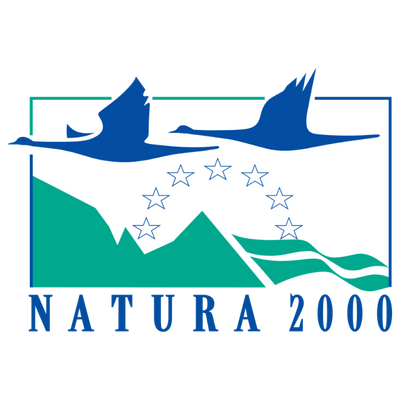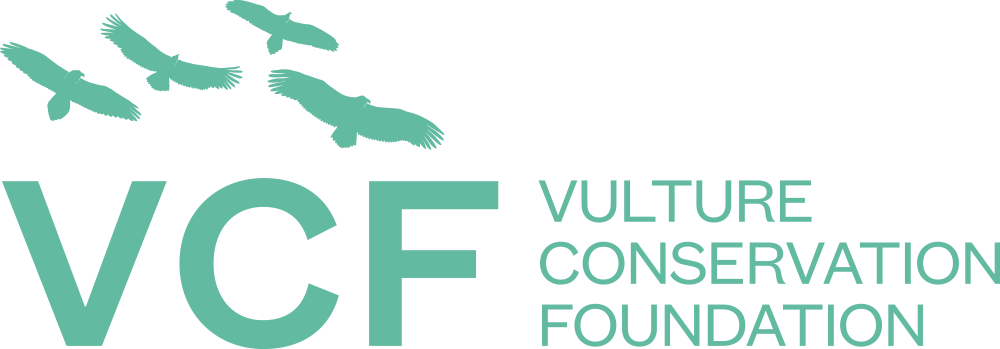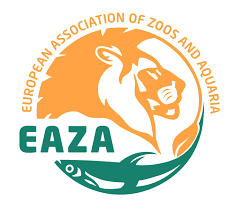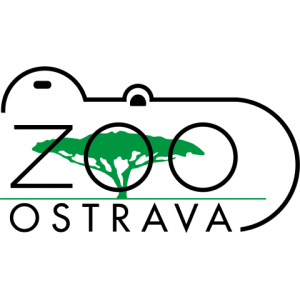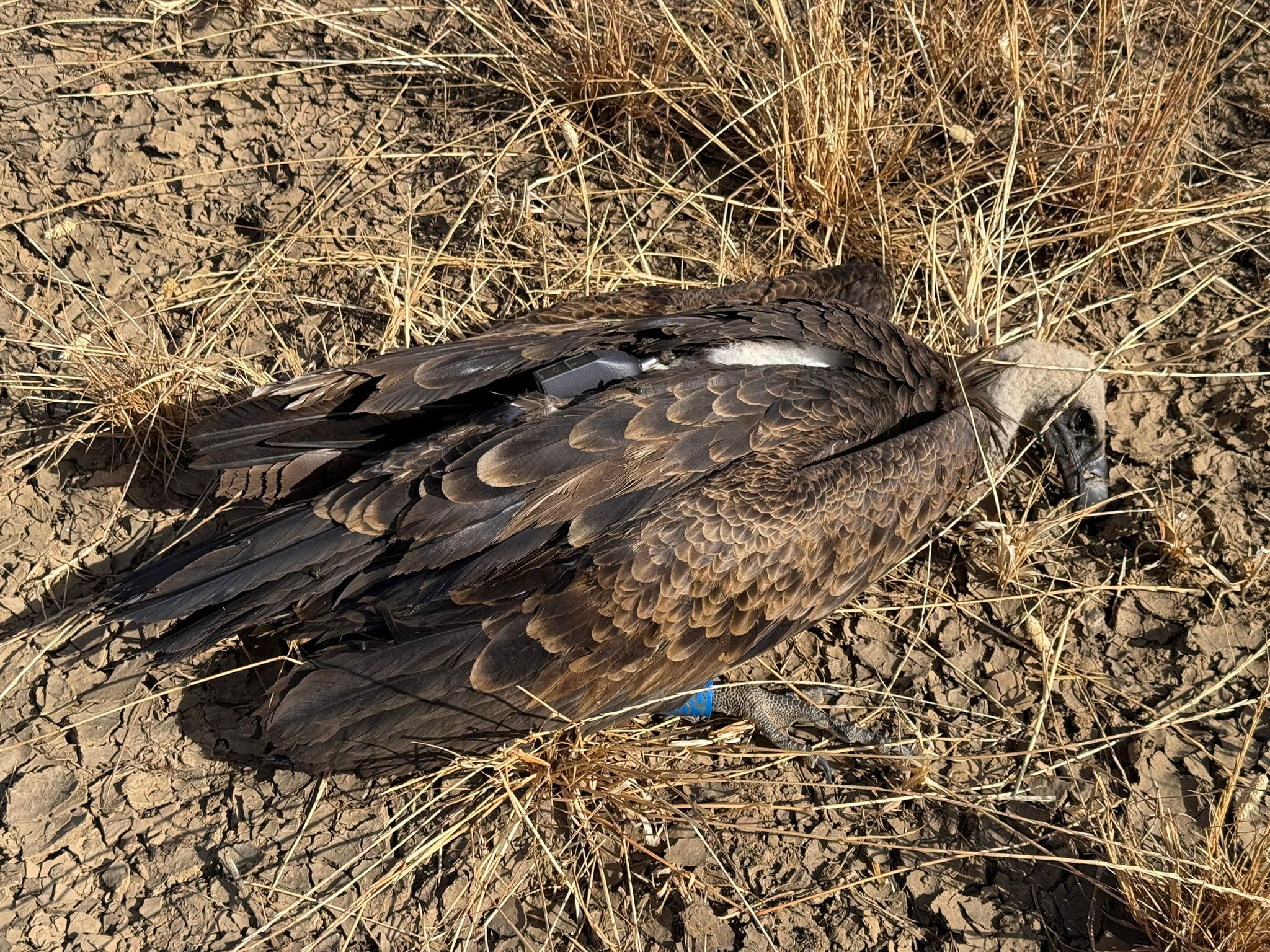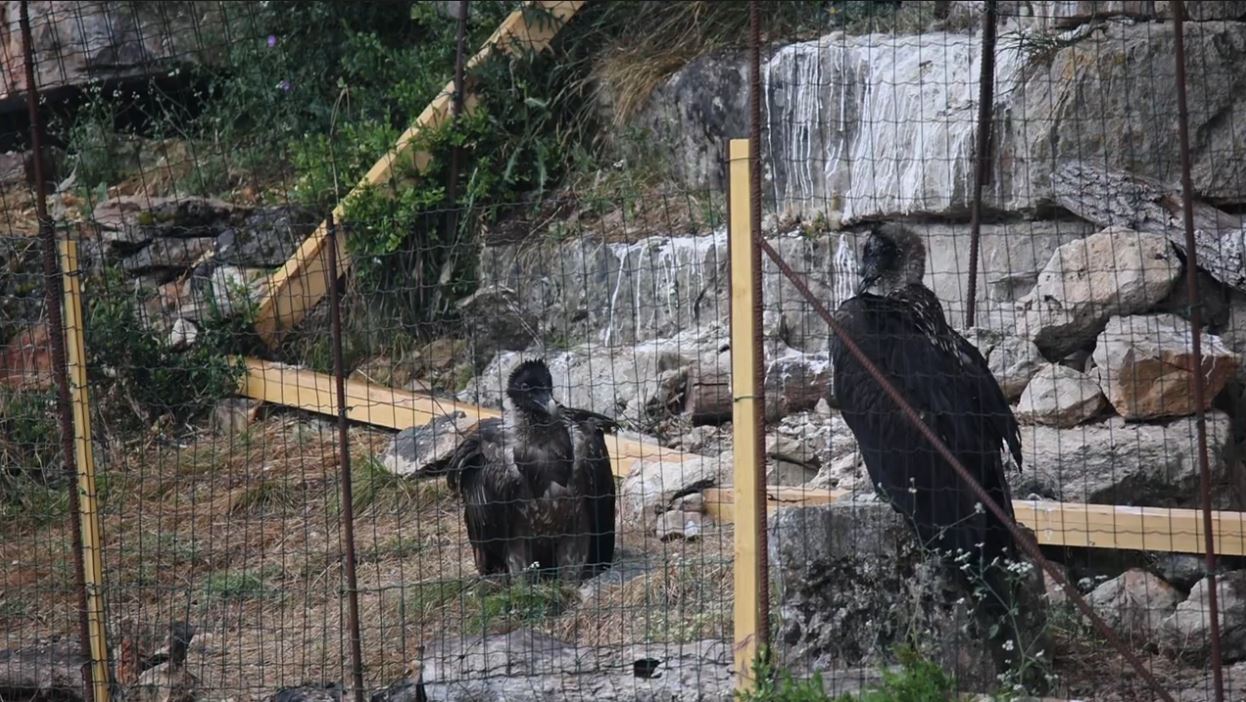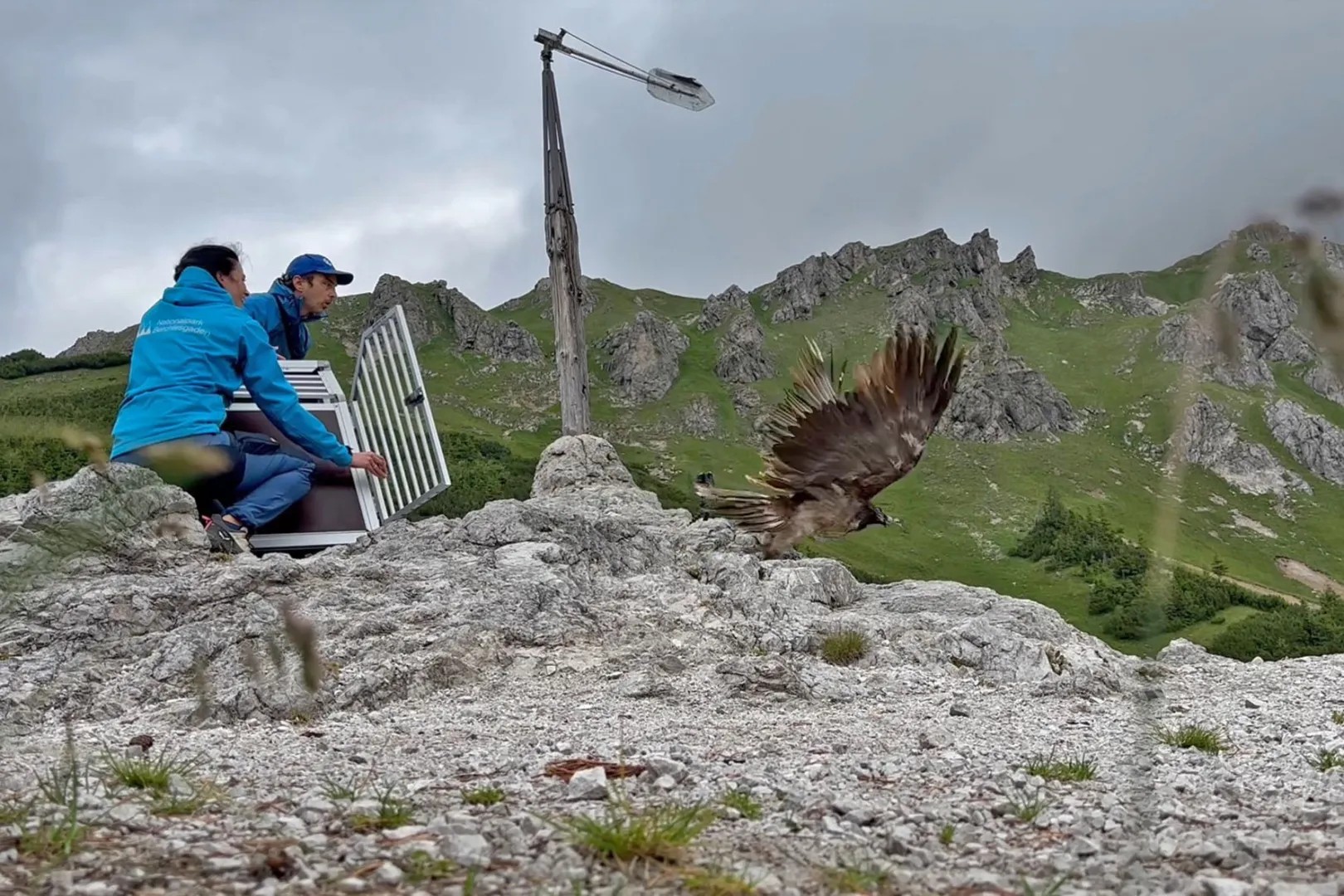Two days ago, we found the remains of the Bearded Vulture Roc under a wind turbine. Roc, a young captive-bred vulture released in the Grands Causses (Southern France) last year through the LIFE GypConnect reintroduction project, had ventured to northern Europe, as many young Bearded Vultures do in their second year. Tragically, he met his end after a collision with a wind turbine in Zeewolde, the Netherlands. This incident signifies the second known case of a Bearded Vulture fatality caused by a wind turbine in the Netherlands, and Europe.

Bearded Vulture dispersal and the risk of collision in wind farms
Bearded Vultures usually live in secluded mountain-top habitats, where wind farms are relatively rare or absent, but with their increasing population and range, instances of vagrancy have been increasing, and therefore the potential for accidents like this has also increased. Every year several Bearded Vultures, typically in their second or third year, leave their mountain ranges and usually fly north, sometimes to the lowlands of northern Europe. Several have reached northern France, the UK, Belgium, the Netherlands or even Denmark and Sweden in the last few years.
Multiple stakeholders invested significant resources in breeding and eventually releasing Roc in the wild as part of the efforts to reintroduce the Bearded Vulture in the Massif Central and Pre-Alps, with the ultimate goal of connecting the populations of the species in the Alps and in the Pyrenees. Roc hatched in Ostrava Zoo (Czech Republic), which holds one Bearded Vulture breeding pair, part of the Vulture Conservation Foundation’s (VCF) captive breeding network, managed on behalf of EAZA’s Ex situ Programme (Bearded Vulture EEP) entirely for conservation purposes. After his release nearly one year ago, on 11 June 2022, in the Grands Causses, Roc moved to the Alps, where he spent most of the winter. This spring, he started a tour through France and even visited the area around Paris. He then returned to the Alps but started moving again in late May. He flew all the way north to Bremerhaven (Germany), near the Wadden Sea. Going south again, he crossed the Dutch border on Friday, 9 June. After a tour across the northern part of the Netherlands, he roosted in a tree near the town of Lelystad on Friday evening.
Second known Bearded Vulture fatality in Europe from wind turbine collision

Ahead of his release, Roc was equipped with a GPS transmitter and was continued to be monitored by the new LIFE Gyp’Act project team, the continuation of LIFE GypConnect, aiming to consolidate the Bearded Vulture population in South-eastern France, ensuring the connection between the Pyrenean and Alpine populations. The GPS data allowed researchers to pinpoint his movements, and hence the VCF was closely following all of Roc’s recent movements. Hans Pohlmann, the president of the management board, himself a resident of the Netherlands, even visited Roc at his roost Friday night. Unfortunately, Roc met a tragic end the next morning when he collided with a blade and most likely died immediately.
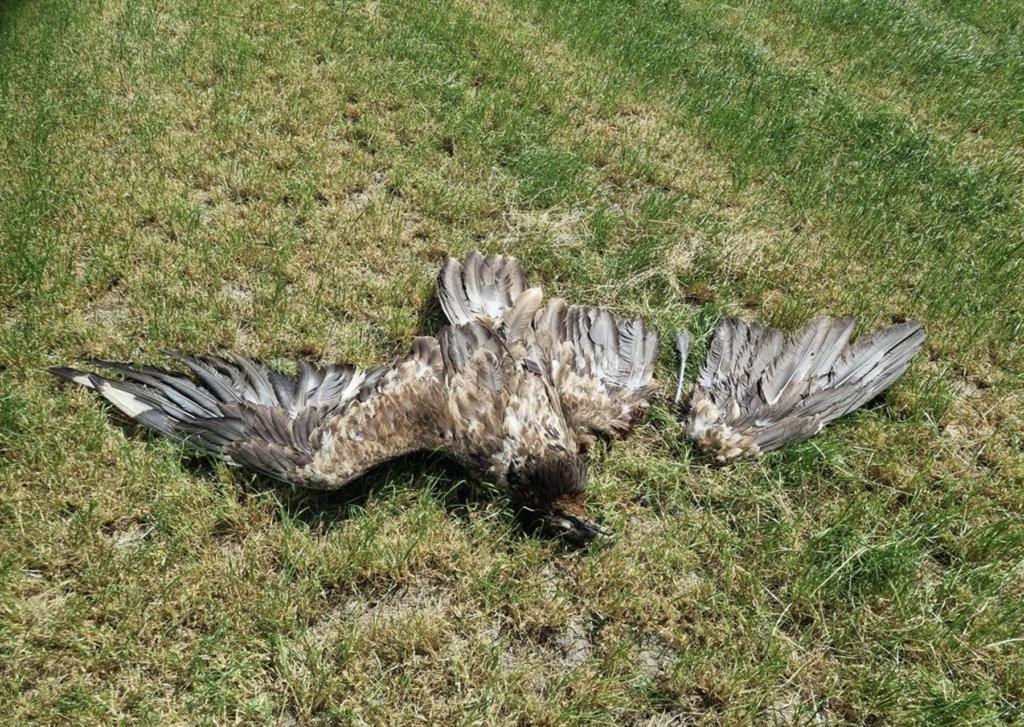
To our knowledge, this is the second documented case of a Bearded Vulture killed by a wind turbine in Europe. Bearded Vulture Angele, also a released bird, got killed in 2021 in Noord-Holland, Netherlands. With the increasing populations and the significant increase in wind farms in several places where Bearded Vultures now occur, such as the vital corridor between the Alps and the Pyrenees in southern France, this number might grow in future years. The VCF and partners have been engaging with researchers and with energy operators to provide data about the occurrence of this species, to try to prevent the establishment of wind farms in important corridors and breeding areas or to explore effective mitigation techniques that help prevent collisions, such as automated detection of incoming flying birds leading to temporary shutdowns. In places like the Netherlands, where the Bearded Vulture is a vagrant, it is important for operators to be open to some flexibility and to develop shutdown on-demand processes that can avoid problems like this in some situations. In some areas in the Netherlands, these systems are in place already.
For more information, please contact Hans Pohlmann at h.pohlmann@4vultures.org or +31 6 27060735.
Read and download the Press Release



